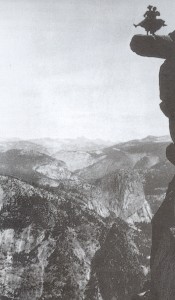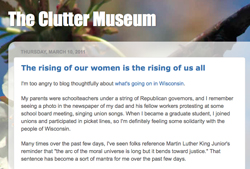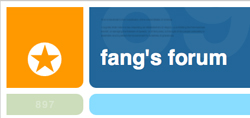I was just reading about how young Assistant Professor Newt Gingrich was booted from his History department and dumped unceremoniously on Geography because he was thinking too much about the future for a professor of history. I fear I may be coming across as a bit Gingrinchy this week, as I just realized it’s only Wednesday and I’ve already written three mini-rants about the future directions of the department and university.*
I’m going to share versions of them here, as each really raises more questions than it answers, and I know my wise and worldly readers may have some wisdom to share in the comments.
Rant the first: On teaching and learning with technology
A senior colleague said The Powers That Be were looking to completely remake the university’s ways of teaching undergraduates within six years, and that this revolution would be brought to us by online courses delivered (I suspect) through Everyone’s Favorite Learning Management System. Online courses, it was suggested, would automagically improve the university’s ridiculously dismal graduation rates.
I couldn’t help but put on my Critical Thinking Cap** and ask these questions:
*To be fair, all three were solicited, rather than imposed in a fit of manic delusion.
**Yes, humanists–even those of us with cultural studies degrees–do have access to such things.




